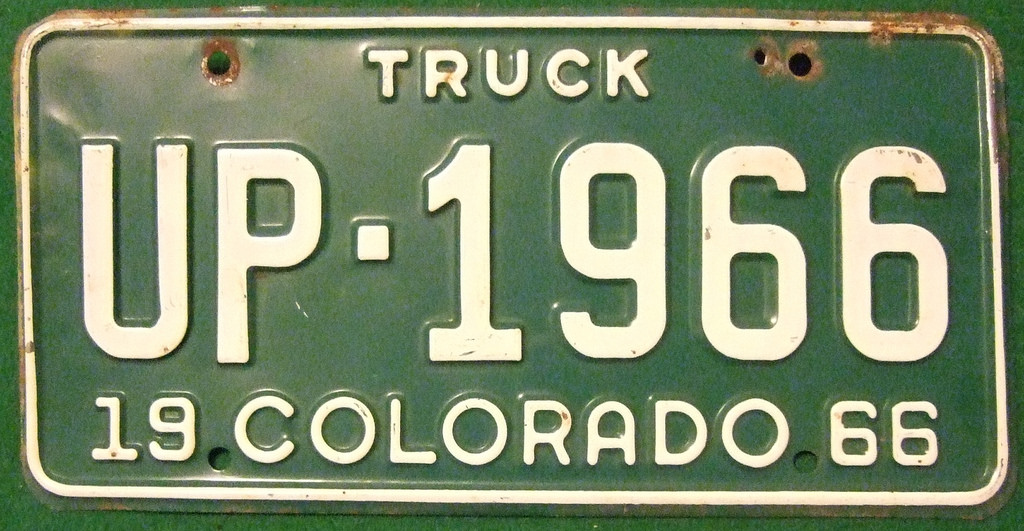Colorado Governor John Hickenlooper announced Tuesday that his state would join 13 states and the District of Columbia in adopting California’s clean car emissions standards.
“Colorado has a choice,” Gov. Hickenlooper said in a statement. “This executive order calls for the state to adopt air quality standards that will protect our quality of life in Colorado. Low emissions vehicles are increasingly popular with consumers and are better for our air. Every move we make to safeguard our environment is a move in the right direction.”
Under the Clean Air Act, states have the right to adopt California’s emissions standards for motor vehicles.
Currently, California’s standards for greenhouse gas emissions are harmonized with national standards, under “The National Program” that was negotiated by the Obama administration, automakers, and the state of California back in 2011.
However, the Trump administration is threatening to roll back the national standards, freezing limits on greenhouse gas emissions at model year 2022 levels for cars sold in 2022-2025.
California’s state air regulators have said that they have no intention of weakening their state standards, even if the federal government goes forward with its plan to abandon the harmonized plan.
“California will not weaken its nationally accepted clean car standards, and automakers will continue to meet those higher standards, bringing better gas mileage and less pollution for everyone,” Mary Nichols, chair of the California Air Resources Board, wrote in a statement emailed to reporters when Environmental Protection Agency Administrator Scott Pruitt announced that his agency would revisit the Obama-era rules.
States’ Right to Regulate Auto Emissions Through California’s Waiver
States have the right, under Section 177 of the Clean Air Act, to adopt California’s standards. Even before Colorado’s announcement, the thirteen states and District of Columbia that have signed onto California’s standards represent a full one-third of the American auto market.
However, California’s right to set these standards depends on a waiver, mandated by the Clean Air Act, to be granted by the U.S. Environmental Protection Agency (EPA) if the state has “compelling and extraordinary circumstances.” California successfully argued for such circumstances a decade ago, and the Obama EPA approved the waiver.
In the history of the Clean Air Act, such a waiver has never been revoked.
A number of conservative groups, many with ties to the petrochemical billionaire Koch brothers and other oil interests, have been lobbying Pruitt and the EPA to try to strip California’s right to self-regulate. And a leaked plan from the EPA signaled the agency’s intention to try to revoke the waiver.
Despite his oft-repeated support of “cooperative federalism,” Pruitt has argued that “California is not the arbiter” of emissions standards for the country.
Air regulators and attorneys general in California and other of the so-called “177 states” have countered that the Clean Air Act is unambiguous in granting Golden State authorities the right to set standards for the state — not the nation — and in granting other states the right to choose between California’s or national standards.
Whether Pruitt will be around to make the call on the waiver is uncertain. The administrator’s mounting scandals have become so toxic that even the prominent trade magazine Automotive News has recently called for Pruitt’s ousting:
Political views aside, a serious industry deserves a serious regulator, a public servant of proven integrity who lives by at least a baseline standard of propriety.
Scott Pruitt is none of those things. He may be a handy political ally, but his conduct in office at the EPA, marked by an unending string of tawdry scandals, is anathema to everything the auto industry would expect of its own employees.
He should resign before he embarrasses the auto industry, and the nation, further.
Auto Alliance Attacks Colorado
Now that Colorado has exercised its right as a state to adopt California’s air quality standards for vehicles, it is being attacked by the same car companies who are simultaneously lobbying for one national standard.
“Colorado’s governor today signed an Executive Order committing the state to adopting California’s low emission vehicle standard. This could impose many burdens on the state’s drivers & taxpayers,” the Auto Alliance tweeted on Tuesday.
Colorado’s governor today signed an Executive Order committing the state to adopting California’s low emission vehicle standard.
This could impose many burdens on the state’s drivers & taxpayers.
Share this link with your friends in Colorado: https://t.co/frsnX9brqN pic.twitter.com/IiABokMBeq
— Auto Alliance (@auto_alliance) June 19, 2018
Along with Colorado’s Chamber of Commerce, the Auto Alliance also launched a website, TheColoradoWay.org, that features a number of claims about how California’s standards would hurt Colorado’s economy and reduce consumer choice.
This is despite the fact that California’s standards are currently harmonized with the national program, and Colorado’s order doesn’t include any mandates for sales of any particular class of vehicle.
The Auto Alliance, through this website, also claims paradoxically that stronger fuel efficiency standards would cause gas prices to go up in Colorado.
According to a recent analysis by the Union of Concerned Scientists (USC), however, the economic impacts of the current fuel economy and emissions standards are overwhelmingly positive. The standards that Gov. Hickenlooper hopes to maintain with this executive order have saved Coloradans $550 million to date, and are projected to save another $2,700 per household through 2030, according to the USC analysis.
Main image: Colorado 1966 – Truck Credit: Jerry “Woody,” CC BY–SA 2.0
Subscribe to our newsletter
Stay up to date with DeSmog news and alerts






